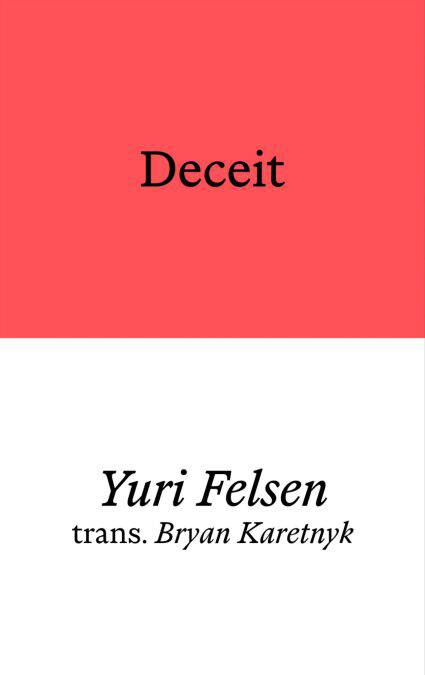
- Afhalen na 1 uur in een winkel met voorraad
- Gratis thuislevering in België vanaf € 30
- Ruim aanbod met 7 miljoen producten
- Afhalen na 1 uur in een winkel met voorraad
- Gratis thuislevering in België vanaf € 30
- Ruim aanbod met 7 miljoen producten
Zoeken
Omschrijving
Appearing for the first time in English, Deceit is the debut novel by Yuri Felsen, a leading modernist writer of the interwar Russian diaspora. Known by his contemporaries as 'the Russian Proust', Felsen died in the gas chambers at Auschwitz, his life and legacy destroyed by the Nazis.
Written in the form of diary, Deceit is a psychological self-portrait of an unnamed narrator, a neurasthenic and aspiring author, whose often-thwarted pursuits of his love interest and muse provide the grounds for his beautifully wrought extemporizations on love, art and human nature. Modulating between the paroxysms of his tormented romance and his quest for an aesthetic mode befitting of the novel he intends to write, Deceit is a remarkable work of introspective depth and psychoanalytic inquiry.
Like voyeurs, party to his most intimate thoughts, we accompany the diarist as he goes about Paris, making enraptured preparations for the materialisation of his fantasy, observing not only his eagerness, dreaminess and poetic inclinations, but also his compulsive desire to analyse his surroundings and self. Yet amid these ravishing flights of scrutiny we discern hints of his monomaniacal tendencies, which blind him from the true nature of his circumstances. Thus begins an exquisite game arranged by the author, wherein it falls to the reader to second-guess the essence of what really lies behind his narrative.
Written in the form of diary, Deceit is a psychological self-portrait of an unnamed narrator, a neurasthenic and aspiring author, whose often-thwarted pursuits of his love interest and muse provide the grounds for his beautifully wrought extemporizations on love, art and human nature. Modulating between the paroxysms of his tormented romance and his quest for an aesthetic mode befitting of the novel he intends to write, Deceit is a remarkable work of introspective depth and psychoanalytic inquiry.
Like voyeurs, party to his most intimate thoughts, we accompany the diarist as he goes about Paris, making enraptured preparations for the materialisation of his fantasy, observing not only his eagerness, dreaminess and poetic inclinations, but also his compulsive desire to analyse his surroundings and self. Yet amid these ravishing flights of scrutiny we discern hints of his monomaniacal tendencies, which blind him from the true nature of his circumstances. Thus begins an exquisite game arranged by the author, wherein it falls to the reader to second-guess the essence of what really lies behind his narrative.
Specificaties
Betrokkenen
- Auteur(s):
- Uitgeverij:
Inhoud
- Aantal bladzijden:
- 320
- Taal:
- Engels
Eigenschappen
- Productcode (EAN):
- 9781913513245
- Verschijningsdatum:
- 7/06/2022
- Uitvoering:
- E-book
- Formaat:
- ePub

Alleen bij Standaard Boekhandel
+ 8 punten op je klantenkaart van Standaard Boekhandel
Beoordelingen
We publiceren alleen reviews die voldoen aan de voorwaarden voor reviews. Bekijk onze voorwaarden voor reviews.











